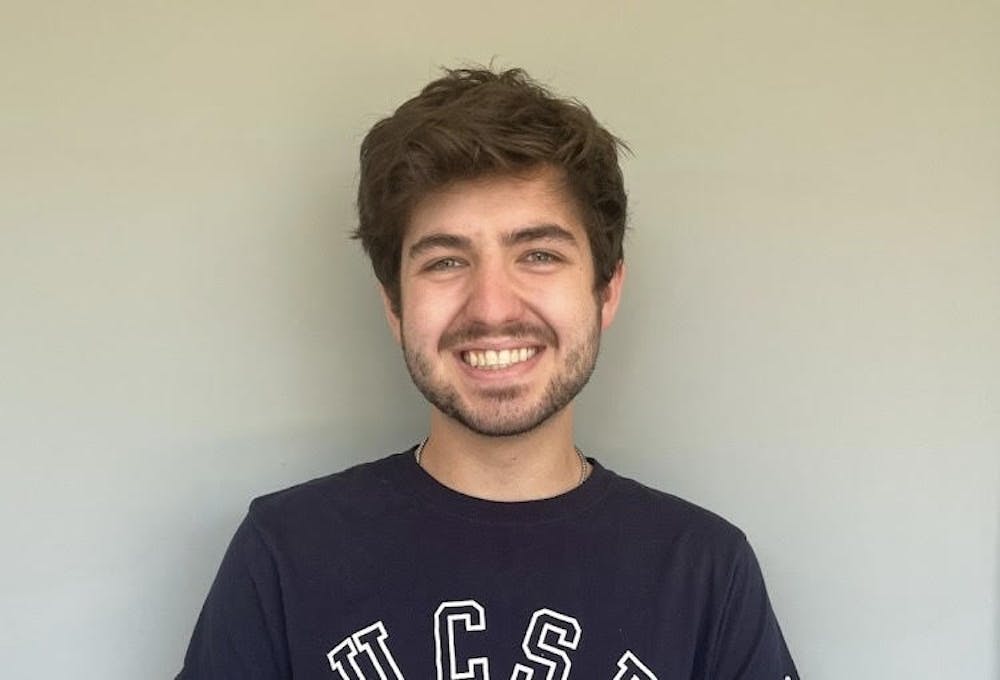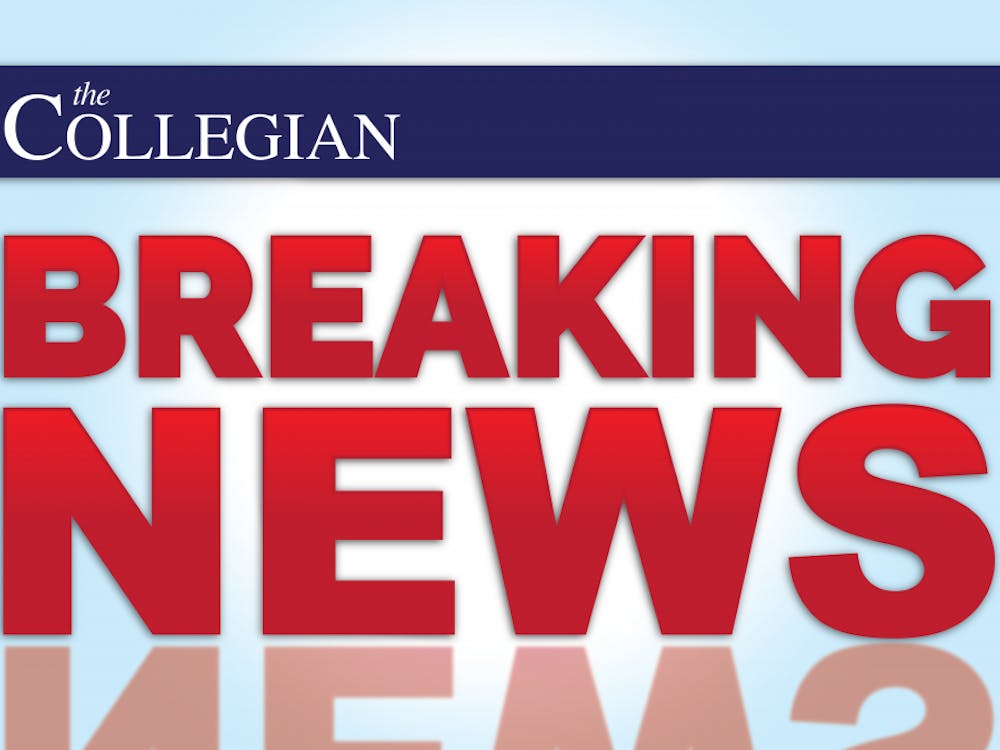Six-year-old Ben Pearson did not know cancer could kill someone until a year and half into his treatment.
The oncology wing of Cedars-Sinai Medical Center in Los Angeles, his hometown, became a place where Pearson felt comfortable, almost like a second home.
"There is a lot of trauma and bad associations with the place, but it's probably where I feel the most comfortable,” Pearson said. “A lot of the very critical social period of growing up with your peers and being in the school environment I spent in the hospital."
Pearson was diagnosed with Acute Lymphoblastic Leukemia in May 2007 when he was six years old. Pearson's diagnosis came about a month after he began to show symptoms, such as feelings of lethargy, paleness and intense leg pains. He spent two months in in-patient care, but adjusted to the chemotherapy smoothly, as far as cancer treatment goes and responded well to the drugs. Pearson received three years of chemotherapy treatments, from the time of his diagnosis to August 2010, with semi-annual check-ups following active treatment, he said.
"There are, obviously, really awful parts of chemotherapy," Pearson said. "Especially when you don't fully understand all of what's happening to you; I'm not really sure if I've landed on whether that's better or worse, but it's just weird."
ALL is a bone marrow and blood cancer that progresses rapidly without treatment and has affected around 6,500 people so far this year, according to the American Cancer Society. ALL is most common in children, especially those under five years old, but it is an uncommon form of cancer, accounting for less than 0.5% of cancer diagnoses in the United States.
Despite the difficulties of cancer treatment, Pearson had a lot of support, he said. With a small pediatric oncology office, the staff at Cedars-Sinai provided him with specialized care and consistent support, which has continued through his remission.
Pearson, now a senior at the University of Richmond, knew he wanted to continue to be in a hospital setting, especially at the place where he built many relationships as a child. He volunteered at Cedars-Sinai throughout his high school years and wanted to continue this kind of work once he moved across the country to attend UR, he said.
"I am fantastic with talking to doctors. I love the smell of rubbing alcohol," Pearson said. "I feel comfortable in a lot of hospitals, but especially at Cedars. I know that whole place. I have it memorized."
The staff at Cedars-Sinai knew that Pearson wanted to work in a hospital too. He would always ask for something to do when he would go in for his own visits, he said.
"Since I finished my chemo, I've been trying to find things to do at the hospital," Pearson said. "It used to be like a running joke that every single time I'd come in I'd be like, 'hey, is there anything I can do?'"
During a summer visit after Pearson's sophomore year at UR, his doctor offered him the opportunity to work on a research project with the hospital. This became Pearson's summer job between his junior and senior years, he said.
Enjoy what you're reading?
Signup for our newsletter
Pearson spent the summer of 2022 researching by reviewing literature, running statistics and collecting data related to chemotherapy's effects on vaccinations, especially those administered during childhood. Pearson was the primary author on a paper that has been submitted to academic journals, he said.
Pearson appreciated the flexibility in his internship and enjoyed getting to create the kind of opportunity that was most meaningful to him, he said.
"[The doctors] gave me a ton of freedom," he said. "I spent the first couple of days [receiving] a crash course on immunology, a little bit about T-cell differentiation, the stuff I would need to know for the actual research, and then kind of just let me go to do a literature review on my own."
Through this work, Pearson learned about the process of publishing an academic paper and how to work through the challenges and setbacks, which he thought was valuable as he completed his health studies major in his senior year, he said.
Despite the research-focused tasks Pearson was assigned, he did not spend the summer behind a computer screen or alone at a desk. He offered to talk to patents and families as a role model for successful cancer treatment, he said.
"Since I was little, I've talked to a lot of parents and pediatric cancer patients," Pearson said. "If any of the parents want to talk about their kid's diagnosis, any worries they have, of course, I'm always willing to talk to them … The parents were a lot more receptive than the kids were; [the kids I talked to] were all really young."
He also met with doctors to discuss his research and their perspectives on topics like immunology, and he attended medical school lectures, which Pearson described as valuable for undergraduates.
Senior Brianna Cantrall, Pearson's girlfriend, has witnessed his connection with the Cedars-Sinai medical staff over the four years she’s known him.
"I love the relationship that he has with his doctors," Cantrall said. "They really want to work with him."
Pearson, in turn, loved going to work for his internship every day. Cantrall said she became inspired by his drive and passion for what he was doing.
Pearson hopes to continue this work after graduation. He started on the pre-health track at UR, with plans to continue on the path to medical school to become a doctor.
"For the longest time, I always knew I wanted to do cancer research," Pearson said. "I knew that was the end goal. But I didn't know what that meant, and so I wanted to be a doctor. Everything I did was very clinically oriented."
After the internship, his long-term goal changed to conducting cancer research and using that research to change health care policy. Pearson said he planned to go to graduate school to pursue a Ph.D. in translational cancer epidemiology, while also working on pediatric survivorship research.
"My big goal was to do some form of oncology research that would end up changing some sort of policy somewhere," Pearson said. "One of the reasons I loved my research last summer was because there were no guidelines for the revaccination of [cancer patients], so this was something that could actually lead to impact in the future."
The research Pearson wants to pursue stems from an understanding that only a pediatric cancer survivor could understand, he said.
"I do remember all of [my cancer journey]," he said. "I was old enough to be cognizant of it. But, some of the biggest impacts it's had on my life have been afterward … It really has a far more profound impact. I'm, what, 13 years out of treatment now, and it still has a pretty heavy effect on my life."
Pearson's passion for helping those who also felt the pain and struggles of cancer treatment and diagnosis will continue after he graduates this May. Following graduation, Pearson will attend his top choice program at the University of California San Francisco for a Master's degree in clinical and epidemiologic research. He hopes to make a difference in pediatric cancer care, he said.
"Just getting something out there to try to help [pediatric and adolescent cancer survivors and patients] would be really, really cool," Pearson said.
Contact features writer Emily Weiner at emily.weiner@richmond.edu.
Support independent student media
You can make a tax-deductible donation by clicking the button below, which takes you to our secure PayPal account. The page is set up to receive contributions in whatever amount you designate. We look forward to using the money we raise to further our mission of providing honest and accurate information to students, faculty, staff, alumni and others in the general public.
Donate Now



